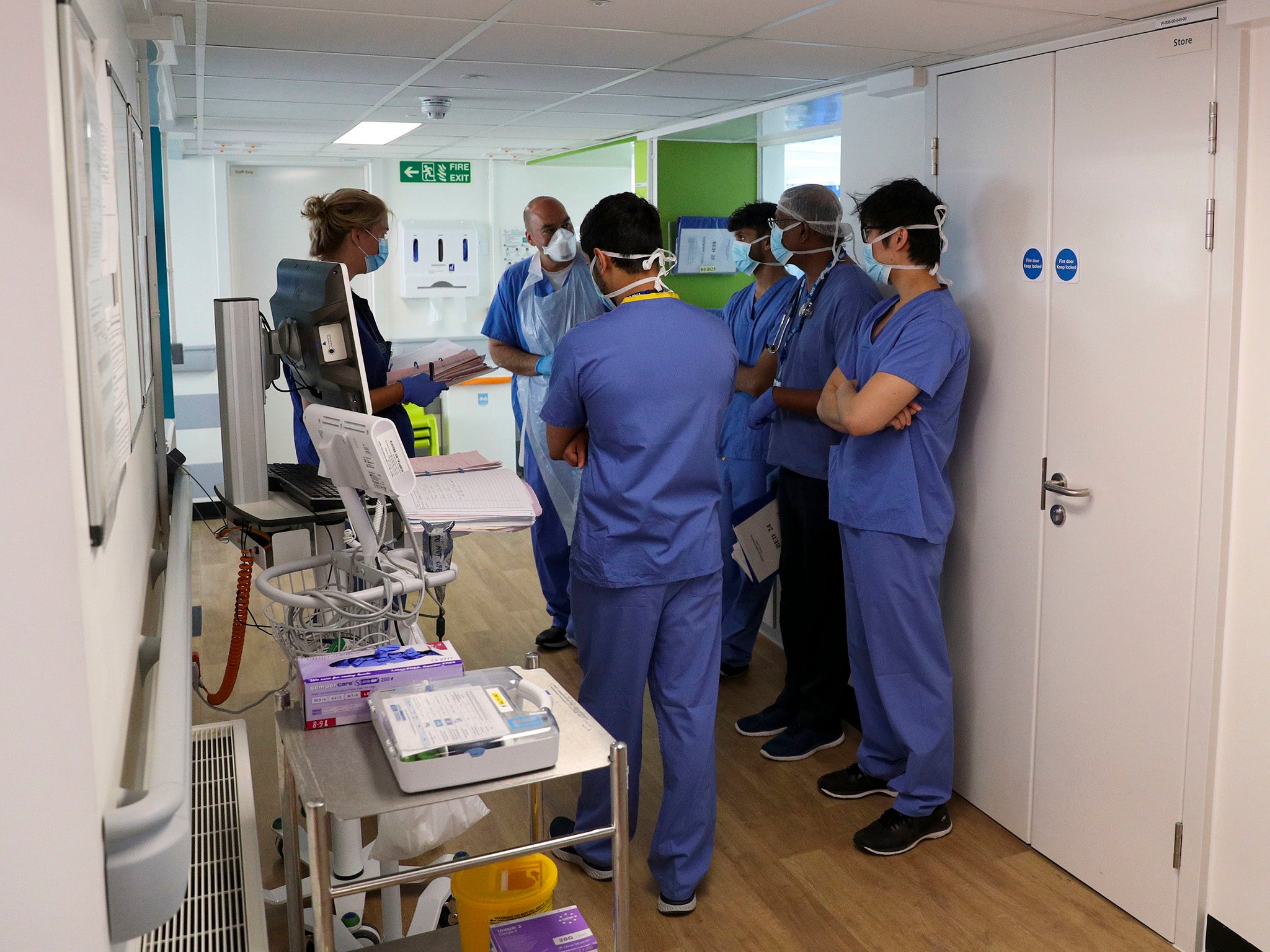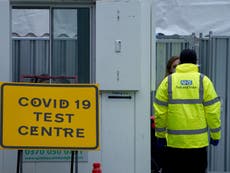Coronavirus: NHS staff struggle with burnout as they warn hospital bosses about looming second wave
Hospital chiefs fear second wave impact on ‘exhausted’ staff

Your support helps us to tell the story
From reproductive rights to climate change to Big Tech, The Independent is on the ground when the story is developing. Whether it's investigating the financials of Elon Musk's pro-Trump PAC or producing our latest documentary, 'The A Word', which shines a light on the American women fighting for reproductive rights, we know how important it is to parse out the facts from the messaging.
At such a critical moment in US history, we need reporters on the ground. Your donation allows us to keep sending journalists to speak to both sides of the story.
The Independent is trusted by Americans across the entire political spectrum. And unlike many other quality news outlets, we choose not to lock Americans out of our reporting and analysis with paywalls. We believe quality journalism should be available to everyone, paid for by those who can afford it.
Your support makes all the difference.NHS workers are at breaking point after months of upheaval and high pressure during the coronavirus outbreak with hospital leaders warning the health service is facing a “perfect storm” of workforce shortages and a second wave of Covid-19.
In a survey of 140 NHS trust leaders almost all of them said they were worried about their staff suffering burnout ahead of winter.
They also sounded the alarm over concerns there had not been enough investment into social care before this winter.
NHS Providers, which carried out the survey ahead of its annual conference of hospital leaders, warned the first wave of Covid-19 had made a lasting impact on the health service which had yet to fully recover.
Chris Hopson, chief executive of NHS Providers, which represents NHS trusts, said there had been “no let-up in the pressure” during the pandemic, which followed a difficult winter for staff.
“And while the response to the spring surge in Covid-19 cases showed the NHS at its best, the pressures took their toll on staff who gave so much,” he said.
“The worry is that the sustained physical, psychological and emotional pressure on health staff is threatening to push them beyond their limits of endurance.”
Almost all those who responded to the survey, 99 per cent, said they were either extremely or moderately concerned about the current level of burnout across the workforce.
One director of nursing told NHS Providers that staff had been working long hours in “high stress circumstances for quite some time”, adding that it was a “real concern”.
Another chief executive reported than some staff were “energised” and had been recommitted to their career during the crisis while others were “exhausted”.
Just over a third of trust leaders, 34 per cent, said they were extremely concerned about the current level of burnout across their workforce, while 48 per cent reported being moderately concerned and 17 per cent slightly concerned.
Over half of trust leaders surveyed said they were extremely concerned about the impact of seasonal pressures over winter on their trust and local area, while more than a third said they were moderately concerned.
“We have a perfect storm on the horizon; depleted staff, depleted capacity, increasing workload,” one chief executive said.
The survey was carried out during August ahead of the recent spike in coronavirus cases.
A total of 83 per cent of trust leaders reported that they were worried or very worried that sufficient investment had not been made in social care in their local area.
NHS Providers warned the “discharge flow” of patients from hospitals back into the community was starting to slow down, meaning hospitals could struggle to free up beds in the winter for emergency patients and those sick with flu and Covid-19.
Mr Hopson added: “When you ask them what’s the problem, what comes back is effectively problems in social care because of lack of capacity.
“That’s not surprising given current funding problems in local government.”
Councillor Ian Hudspeth, chairman of the Local Government Association’s community wellbeing board, said: “The upcoming spending review must urgently provide councils with the extra funding they need to help shore up social care ahead of winter, while also using this as the basis for future reform of social care to place it on a long-term, sustainable footing.”
Dame Donna Kinnair, chief executive of the Royal College of Nursing demanded a 12.5 per cent pay rises for nurses and warned investing in more hospitals and beds would be of no use if there were not nurses to staff them.
She said: “While levels of stress show little sign of decreasing, concerns about staffing levels are only going up.
“Government must act now to deliver the nursing staff needed. There has been investment in beds and buildings but whether hospitals are rebuilt or wholly new, they will struggle to provide safe and effective patient care without enough nurses.
“With many citing pay as a reason for thinking of leaving, one of the immediate actions government must take is to give nursing staff an early, meaningful pay rise of 12.5 per cent that recognises their skills, responsibilities and experience.”



Join our commenting forum
Join thought-provoking conversations, follow other Independent readers and see their replies
Comments